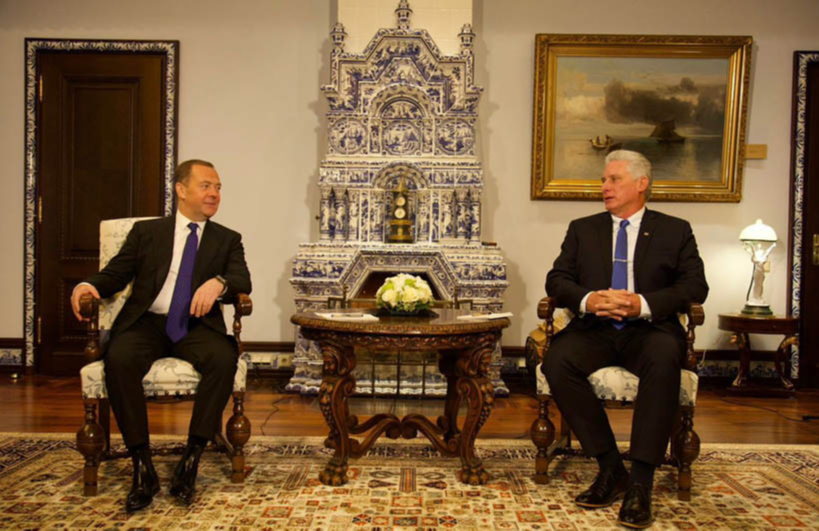
Medvedev (L) and Díaz-Canel had a cordial dialogue. Photo: @PresidenciaCuba
Havana, November 21 (RHC)-- The First Secretary of the Central Committee of the Communist Party of Cuba and President of the Republic, Miguel Diaz-Canel, and the Vice President of the Russian Security Council, Dmitry Medvedev, ratified Monday in Moscow the common will to seek ways to strengthen economic relations and expand political dialogue.
Upon receiving the head of state, Medvedev thanked him for the official visit and affirmed that sanctions against both states cannot slow down their economic cooperation and the links between the parties.
Information from the Cuban Presidency refers that the Russian authority highlighted the ties of friendship that have united the two nations for decades.
"We live in a complex world, under strong sanctions", Medvedev pointed out, and Cuba for us is a country with a lot of experience in these matters.
For his part, Díaz-Canel showed his satisfaction at being in Russia, and conveyed a warm embrace from Army General Raúl Castro Ruz.
"The Cuban leader described this as an opportune moment to make the visit to #Russia, also in response to President Putin's invitation to inaugurate the monument erected to the memory of the Commander in Chief, Fidel Castro Ruz," the Presidency said in its Twitter account.
Since this November 19, a high-level delegation from Cuba arrived in the Russian Federation on an official visit that will last until tomorrow, Tuesday 22, and whose agenda includes talks with President Vladimir Putin, with authorities of the Parliament and the Party.
The Eurasian nation is the second stop of an international tour of President Díaz-Canel, which began on November 16 in Algeria, and will continue in Turkey and China.
As explained by the Cuban president, the program designed for the tour responds to Cuba's political and economic priorities, as well as to the efforts to alleviate the effects of the post-pandemic crisis that is affecting the whole world, and which in the case of the island is aggravated by the effects of the U.S. economic, commercial and financial blockade.

